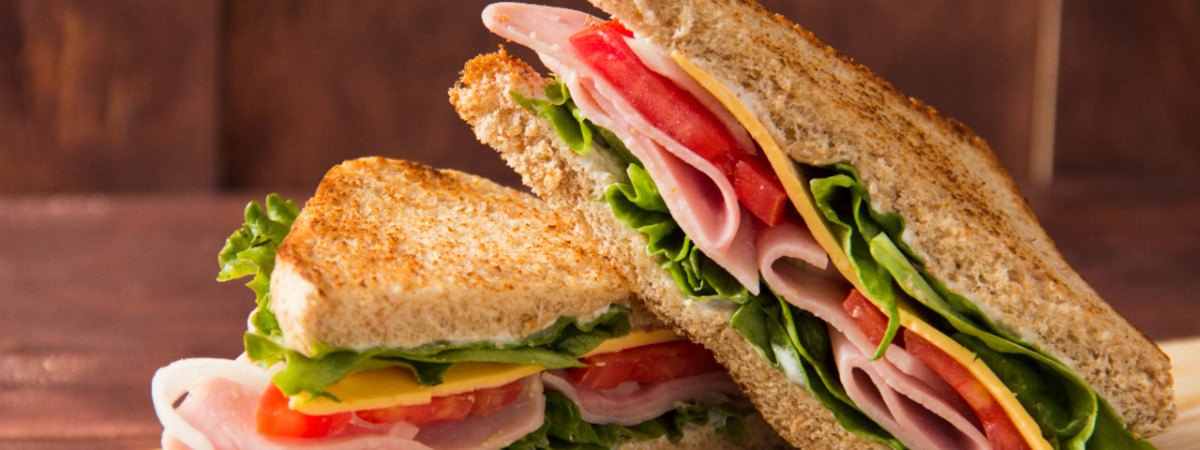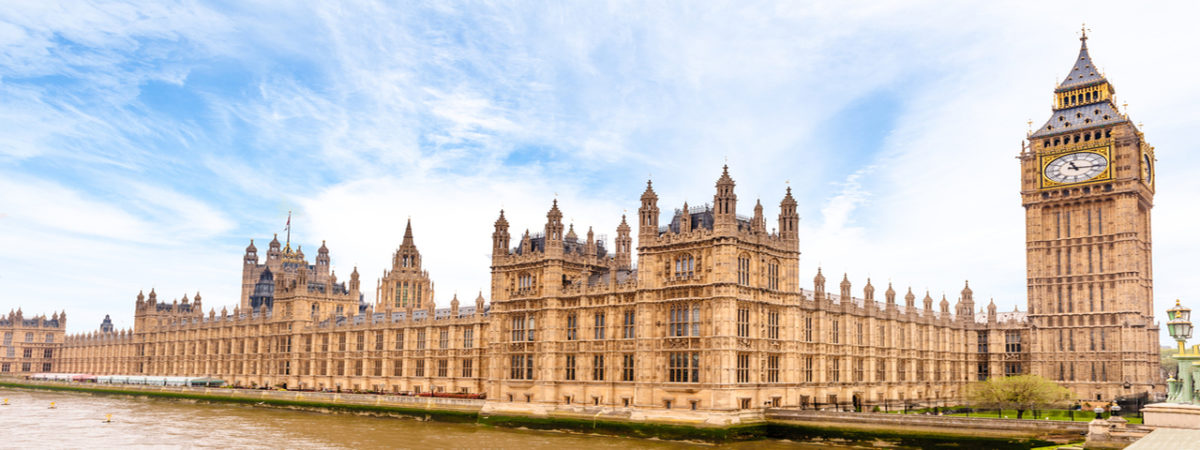£50,000 IEA Breakthrough Prize awarded to entry calling for individual “nest egg” funds for lifetime learning
SUGGESTED

Christopher Snowdon responds to Professor Dame Sally Davies's final report on childhood obesity

IEA responds to the Queen's Speech

The prize – run by the Institute of Economic Affairs and supported by entrepreneur Richard Koch – sought to find the best and boldest entry outlining what single policy would give everyone in society, whatever their background, a real opportunity to succeed on their own merit.
The policy needed to be politically possible and compatible with a free market society. It was judged by a panel including Richard Koch, IEA Director General Mark Littlewood, IEA Associate Director Kate Andrews, and IEA Academic and Research Director Syed Kamall.
The winning entry, “EDegg: The EDucation, Enterprise and Giving-back Grant – A nest egg of opportunity for all”, proposes re-arranging the flows of money in higher education so that universities, rather than government, lend to their students.
Without costing the government a penny in additional expenditure, EDegg provides a nest egg of £20,000 for each 18-year old. Under the proposed system, students and universities gain from a liberalised risk-sharing pricing system that makes them partners – working together to improve graduates’ career prospects.
The authors argue EDegg would ensure lifetime learning, as the £20k doesn’t need to be used at age 18, and encourages more competition among educational institutions, which would rely on post-graduate income payments and therefore become more invested in their students’ long-term success.
Furthermore, the £20,000 credit would not simply be restricted to higher education, but could be used for alternative education or training, the launch of a new business or voluntary activities.
The authors describe EDegg as a hybrid public policy idea, combining the previous Labour Government’s egalitarian Child Trust Fund (CTF) with free-market mechanisms supporting freedom, diversity, competition and efficiency, which could give the proposal cross-party support.
Commenting on the winning submission, Mark Littlewood, Director General of the Institute of Economic Affairs, said:
“For the United Kingdom to remain a competitive and dynamic economy, it is crucial for us to formulate, encourage, and implement free market solutions that allow all members of society to succeed without hindrance from overbearing government regulation.
“This year’s Richard Koch Breakthrough Prize saw hundreds of entries, from over thirty countries, pitch innovative, classical liberal solutions that would help to boost social mobility. The quality and depth of this year’s entries was very impressive and a huge congratulations is in order for our winners.”
Richard Koch, supporter of the prize and member of judging panel, said:
“I’m delighted at the quality of the ideas in this year’s Breakthrough Prize, and particularly the winning entry, “EDegg: The EDucation, Enterprise and Giving-back Grant: A Nest Egg of Opportunity for All”, written by Peter Ainsworth and Dr Tom McKenzie.”
1. MEDIA ENQUIRIES
To arrange an interview with the winners, or for any other media enquiries, please contact Emma Revell, Head of Communications, on 07931 698 246.
2. ANNOUNCEMENT OF WINNER
The announcement of the prize will be at an event in central London tonight, 6.30pm – 10.00pm. For more details, contact Emma Revell as above.
3. ABOUT THE WINNERS
Peter Ainsworth is the Managing Director of Consulting AM Ltd, which advises the global investment community on market risk and uncertainty. Previously, he was Managing Director of EM Applications, a supplier of investment risk systems.
In 1994, The Economist published his outline proposal to improve the outcomes of university education. In 2010, at the request of the Russell Group, the concept was expanded into a paper. Derivatives of the paper were then published by the Institute of Economic Affairs in 2014, the Centre for the Study of Market Reform of Education in 2016 and Economic Affairs in 2016. Peter is a Trustee of the local Sea Cadets and has a BA in Economics from the University of Cambridge.
Dr Tom McKenzie is an academic economist specialising in Behavioural Economics and Public Finance. Tom holds degrees from the Universities of Bonn and Cologne and has taught at institutions in France, Germany, Turkey and the UK.
He is Associate Fellow of the Higher Education Academy in England and Honorary Research Fellow at the University of Dundee, Scotland. In his work, Tom studies differences between the private, public and voluntary sectors, focusing on “Who pays for what, and why?”
4. WINNING ENTRY
To download the winning entry, “EDegg: The EDucation, Enterprise and Giving-back Grant – A nest egg of opportunity for all”, click here.
5. RUNNER-UP
The runner-up, Idreece Khan, will receive the Highly Commended Prize of £2,500.
He proposes that the government should utilise the internet in the education sector. He lays out how the government could act an administer of formally recognised qualifications that can be attained exclusively from self-studying and using cheaply available courses online. Khan argues this could be an efficient way of getting more people qualified in skills that the UK workforce is currently lacking, all at an affordable price, when compared to the cost of attending formal academic institutions.
To download Idreece Khan’s entry, “The Biggest Library in the Universe: How Using the Knowledge Contained on the Internet can Improve Social Mobility”, click here.
6. COMMENDED AWARDS
Three commended entries will receive a prize of £800 each.
To download Timo Bremer’s essay “The Right to Opt-Out: A Policy Proposal that Empowers People to Create the Opportunities They Need”, click here.
To download Sam Green’s essay, “Pre-school; Creating a Society Fit for All”, click here.
To download Dr David Van Rooyen’s essay, “Breaking Down Barriers: Rolling Back Occupational Licensing in the UK”, click here.
Other short-listed applicants will receive an entry prize of £250 each.
7. STUDENT PRIZE WINNER
Martin Higgins is the winner of this year’s Student Prize.
His entry argues for the UK to introduce localised pricing for the national grid, as the current system centralises consumer prices and excludes some consumers from massive potential benefits and savings. Rather than having a UK-wide set energy price, Martin suggests a price system whereby regions have their own prices that also fluctuate throughout the day.
To download Martin Henry Higgins’ entry, “Locational Marginal Pricing: Towards a True Free Market in Power”, click here.
Martin will receive the Student Prize of £2,000.
8. SCHOOL PRIZE WINNER
Amos Wollen is the winner of this year’s School Prize.
His essay calls for replacing the existing tax and benefits system with a Negative Income Tax and the flat tax.
To download Amos Wollen’s entry, “The Rhys-Williams Flat Tax”, click here.
Amos will receive the School Prize of £1,500.
9. ABOUT THE RICHARD KOCH BREAKTHROUGH PRIZE
This year’s Breakthrough Prize gives serious consideration to what policies would give everyone, regardless of their background, a real opportunity to succeed on their own merit.
Competitors were asked to propose a single policy initiative which would:
- reduce the dependency of low-income Britons on the state, and encourage an entrepreneurial and ambitious mindset across the whole of society.
- improve the economic opportunities for low-income Britons.
- increase the economic freedom of the population at large.
- be politically possible.
The competition this year had a two-stage entry process, with entrants initially expected to submit a short (500-1,000 word) abstract of their breakthrough idea.
The best 11 ideas were shortlisted for the second and final round, where entrants were asked to submit a more detailed essay (3,000 – 4,000 words) expanding their idea.
Richard Koch – who is supporting the Prize – is a British author, speaker, investor, and a former management consultant and entrepreneur. He has written over twenty books on business and ideas, including The 80/20 Principle, which is about how to apply the Pareto principle in management and life.
10. ABOUT THE IEA
The mission of the Institute of Economic Affairs is to improve understanding of the fundamental institutions of a free society by analysing and expounding the role of markets in solving economic and social problems.
The IEA is a registered educational charity and independent of all political parties.



